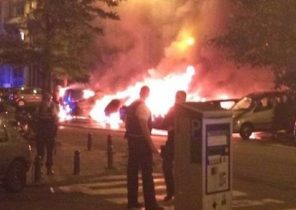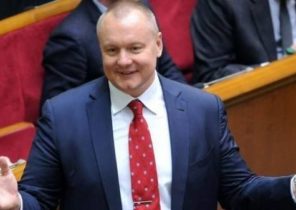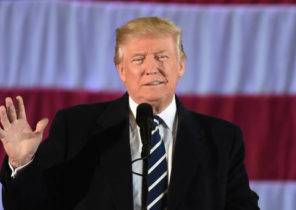
In 2013, when the refrains of European integration and signing the Association Agreement became especially insistent, it became clear that the Russian response will be sharp, and the price of the counter for us — very high. But Viktor Yanukovych was going to seriously pay for this account. Rhetoric European integration needed for future trading with Russia — this trick was used in our foreign policy too often to be effective. The result was the political bankruptcy of the regime and the threat of the Ukrainian statehood.
Since the account for which we are paying for the desire to become closer to Europe, is only growing. Three years had changed both Ukraine and Europe, and the world around us. It is unlikely we could get enough speed to quickly overcome the Russian gravitational field, and the threat to forever remain in this orbit is still relevant. It is absolutely obvious that Ukraine needs a new, working, not reciting, foreign policy plan that aims, whenever possible, in the future, not the past.
Normal foreign policy strategy should be based on clearly marked, the price that Ukraine was ready and not willing to pay for peace with Russia. Heated debate around a variety of plans and projects in recent weeks, concerning this subject, has shown that clarity in this matter is not enough. We have designated the frame — invariance of European and Euro-Atlantic aspirations, the status of Crimea and Donbass, as well as our terms of elections for that to go not ready. In this rhetoric, nothing has changed in recent years, it is the slogans that brought the victory of Peter Poroshenko on elections in 2014, with slight variations on the theme of Donbass. In their proper ideological message is no doubt — there is no doubt that they are the basis of operating strategies that will produce results.
Stay on this position is the first of the viable alternatives. It does not require any special predictive skills and easy to implement. In this case, everything will remain about the same as it was: deadlock in Ukrainian-Russian relations and the frozen conflict in the Donbas. Reason to believe in the ability of the state to carry out reforms in such conditions there, and it means that Ukraine will remain outside the EU and NATO, deep in the gray zone of security. The survival of the Ukrainian state will become a matter of choice and coincidence in Washington, Brussels, Berlin or Moscow. It’s familiar and, perhaps, the lesser of two evils.
Any attempt about anything to negotiate with Russia will be much more challenging. For many reasons, including those that were created by the hands of the Kremlin. The emotional component of these causes are fully understood: the treachery of Russia in Ukraine, it does not know of examples in recent history of Europe. Focusing on the pragmatic aspects, we can note the following interesting paradox: voiced variants of concessions to the Kremlin in exchange for peace is presented as the spirit of political realism, but the result to which they lead, contrary to the tenets of this theory.
The first thing that advises States realism, is to forget about the intention and to pay attention only to the balance of power. In the anarchic world of egoists you can’t trust anybody. The annexation of the Crimea has turned the neo-liberal European policy of realpolitik. The international Treaty and the promises don’t guarantee anything. The question of guarantees is a weak point of almost all recently proposed initiatives, one way or another aimed at finding a compromise. Whatever we promised Russia in exchange for peace, we can’t be sure. The best guarantee will be the power potential, our own and allies. For this reason, we will continue to aspire to join NATO and generally to seek allies wherever possible. However, it does not deprive us of the opportunity as well as to make promises we don’t intend to keep.
It follows another challenge: to offer this system of compromise, which it would be unprofitable to break, even if it is possible to do it. Students of conflict through game theory, a well-known model of prisoner’s dilemma, where it is very easy to get a one-time gain due to the partner-opponent, but the price on the course will be unreasonably high. To create something like that in the current stage of Ukrainian-Russian relations — a task incomparably more difficult, than just to observe the course of events.
From the point of view of negotiation theory for this, it is crucial to know about the so-called best alternatives to negotiations — a result which remains their termination for each party. The basic rule is that a compromise is worse than the best alternative, it makes no sense to take. We good to know not only about our own red lines, but also about priorities and compromises are unacceptable for the Kremlin. On the surface his desire to return to the weak, corrupt and dependent Ukraine into its sphere of influence and to legitimize the annexation of the Crimea; but these positions are deeper interests, and the better we will understand them, the more successful the strategy can build.
The important thing is that we are threatened and encourages action is working against us. Comfortable doing nothing leads to defeat. The world around us is changing and international environment in the current year will be much less favorable. In this sense, to look and discuss a wide range of alternatives is useful and necessary, but simple solutions are still there. Any compromise and agreement with Russia would be risky, dangerous, and will require a very thin design. Let’s hope that Ukraine, as a country, the greater part of its history, committed to multi-vector with non-alignment strategies in foreign policy, to make the highest demands on the professionalism and skills of diplomats and analysts to cope if necessary with this task.







